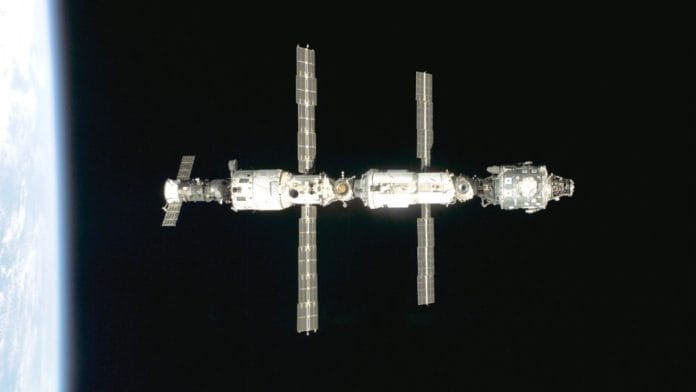New Delhi: A leak detected near the rear of the International Space Station (ISS) has further delayed the launch of the Axiom-4 Mission carrying IAF Pilot Shubhanshu Shukla to space, NASA announced Friday morning. According to ISRO, the new launch date will be announced jointly by NASA and Axiom once the issue is resolved.
The leak was detected in the Russian Zvezda module of the ISS and the three cosmonauts in the module are working to fix the issue.
NASA and Axiom said in a statement they were postponing the launch so that, along with Roscosmos, the Russian Space Agency, they can get more time to understand the problem.
The decision was made keeping in mind that Shukla and the three other crew members aboard Ax-4 Mission are expected to spend a minimum of two weeks living on the ISS, conducting research.
Indian Space Research Organisation (ISRO) also said it was “working closely” with Axiom Space, NASA and SpaceX to “responsibly address” the ISS module problem.
ISRO is working closely with @Axiom_Space, @NASA, @SpaceX as they responsibly address the ISS Zvezda module observation causing the Ax‑4 delay. Safety and mission integrity remain our top priorities.
With regards
Dr. V.Narayanan
Secretary DOS/
Chairman ISRO & Chairman Space…
— ISRO (@isro) June 12, 2025
This is the fourth time the Axiom-4 Mission, which marks an Indian astronaut’s return to space after 41 years, has been postponed. The mission was initially set to launch on 29 May but was pushed to 8 June because of problems identified in the SpaceX Dragon spacecraft.
It was subsequently moved to 9 June because of readiness issues in the SpaceX Falcon rocket, and then again to 10 June because of unfavourable weather conditions.
On 10 June, Axiom announced that it had noticed a liquid oxygen leak in the rocket during the dry run and was postponing the launch again.
The mission now stands postponed with no future launch date set.
Also Read: What is a LOx leak—snag that has delayed Axiom-4 mission once again
What is the Zvezda module
The Zvezda module, part of the Russian contribution to the ISS, was docked to the station in July 2000. It provides life support systems, living quarters, communications systems and flight control systems to Russian cosmonauts aboard the station.
According to the ISS blog, cosmonauts onboard the Zvezda module recently repaired the air leak in their module. However, NASA again discovered a change in air pressure inside the ISS, indicating a leak or anomaly.
The cosmonauts have checked the interior walls of the Zvezda module for cracks and sealed the suspicious areas. While the pressure inside seems to be normal, NASA and Roscosmos are still looking for a longer-term solution. The ISS is made up of different modules attached by different space agencies—NASA, JAXA, CSA, ESA, and Roscosmos.
While some modules like the Permanent Multipurpose Module by the ESA are used mainly for cargo storage, others like the Cupola by NASA are used for Earth observation and space walks.
However, the Zvezda, like ESA’s Tranquility Module and NASA’s Unity Module, is one of three ISS modules that have life support systems for astronauts in space and provide living quarters.
In the event of a new mission like Axiom-4 carrying a crew to space, it is vital for the station to be fully operational and intact to prevent potential problems during the docking of spacecraft or conducting research experiments.
(Edited by Sugita Katyal)






